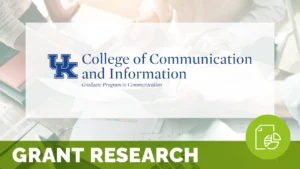The experiences of rural British Columbians accessing surgical and obstetrical care

The attrition of small volume surgical and maternity services in rural Canada over the past three decades has made access to these services especially challenging for rural citizens. While many of these closures have occurred as consequences of regionalization, a strategy to regionally centralize healthcare services, many studies investigating outcomes of regionalization have focused on costs and medical endpoints rather than the direct experiences of the rural patients affected. In this study, we aimed to understand and document the experiences of rural residents accessing procedural and maternity care both locally and away from home. This study is part of a larger evaluation framework which prioritizes the insight of rural residents regarding healthcare issues. We conducted focus groups and interviews with 54 participants in six communities across British Columbia’s southeastern and northern regions. Thematic analysis showed that rural residents experienced unique challenges when leaving their communities to access care. This included logistics of travel, poor coordination of care between multiple providers, and financial and psychosocial issues. Despite being mostly content with the medical care received, participants expressed needing more attention to their unique needs and preferences as patients leaving their home communities for care. Understanding these challenges facilitates the planning of healthcare services in a more equitable manner. Our findings suggest that we need increased patient-centered healthcare planning that aims to alleviate the financial and psychosocial strain on rural residents.
Related content
-
 Policy & Measurement
Policy & MeasurementAnd the Survey Says…: A Qualitative Exploration of the Perspectives of Nurse Managers Who are Accountable for Patient Experience Measures
By examining nurse manager accountability for patient experience measures, this study seeks a deeper understanding of nurse managers’ perceptions of patient experience measures and how these measures drive organizational communication behaviors. Funded through The Beryl Institute’s Grant Program for scholars, Lisa Huddleston, Ph.D., explores whether hospitals use patient experience scores as intended — to guide
Learn more -
 Culture & Leadership | Policy & Measurement
Culture & Leadership | Policy & MeasurementState of Human Experience 2023: Fundamentals and the Future of Experience
Jason A. Wolf, Ph.D., CPXP , President & CEO, The Beryl Institute Since 2011, The Beryl Institute’s State of Patient Experience Study has provided global insights and evidence on where the experience movement is moving. Its results have revealed challenges and inspired action globally. It too has reflected the very evolution of the field of experience itself.
Learn more -
 Policy & Measurement
Policy & MeasurementInterventions that improve patient experience evidenced by raising HCAHPS and CG-CAHPS Scores: A narrative literature review
Hospital administrators and researchers often use large, standardized surveys that examine patient satisfaction to evaluate whether interventions improve patient experience. To summarize the breadth of these interventions and how large, standardized surveys are used to evaluate them, a multidisciplinary research team conducted a review. They used PubMed and Google Scholar searches, reviews of reference lists
Learn more
